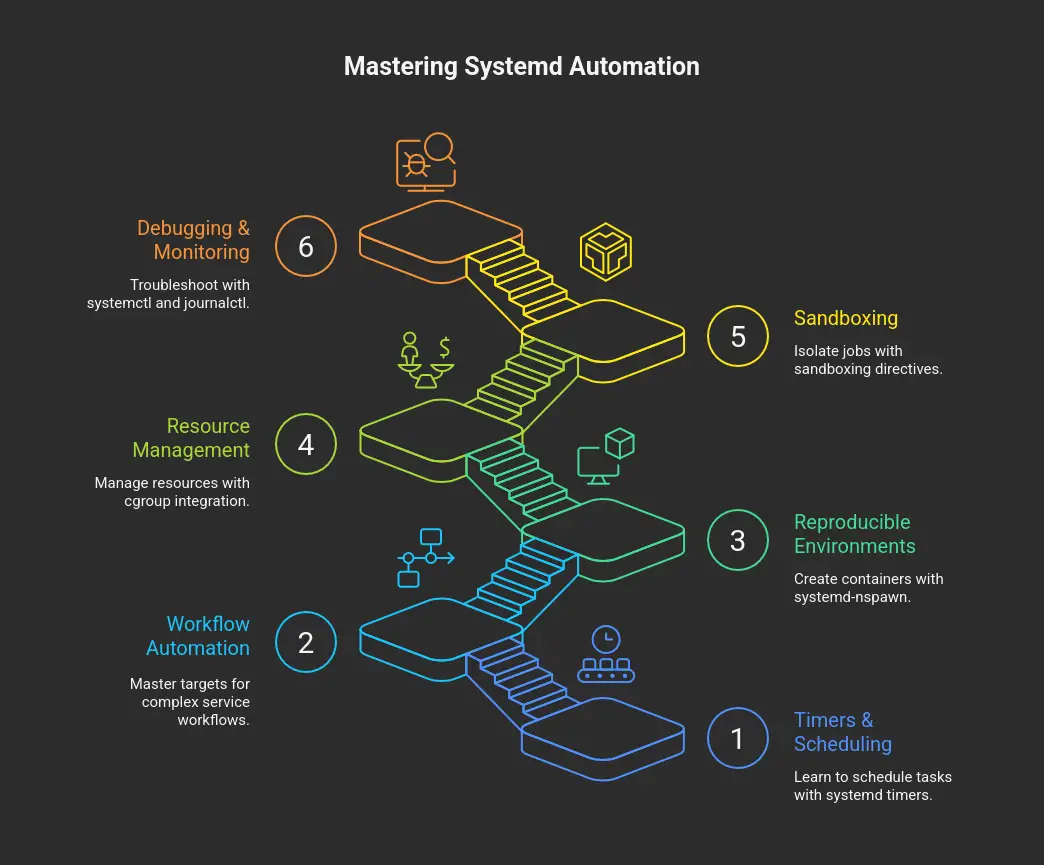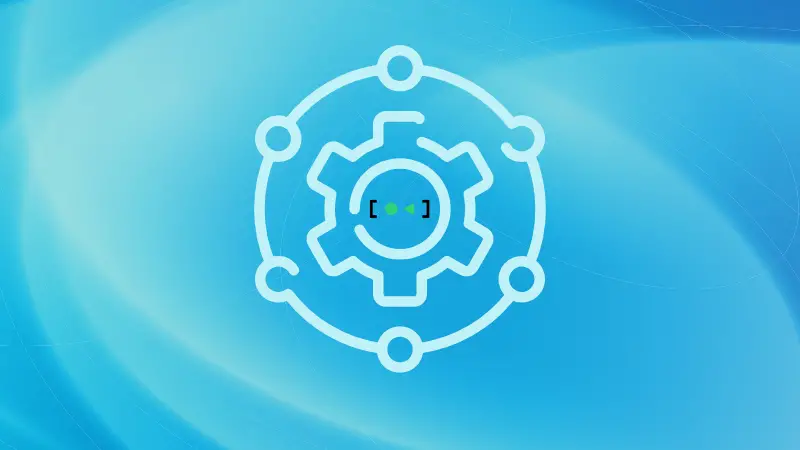Course content
- Module 1: Timers and Automated Task Scheduling in Systemd 30m
- Module 2: Automating Complex Workflows with Targets 30m
- Module 3: Systemd-nspawn and Machinectl for Repeatable Environments 30m
- Module 4: Automated Resource Management With Systemd 30m
- Module 5: Sandboxing Systemd Directives for Safer Automation 30m
- Module 6: Debugging Automated Services 30m
Unlock the full potential of your Linux system by replacing the classic cron jobs with modern, powerful systemd automation. Learn how to schedule, monitor, sandbox, and optimize automated workflows like a pro, all while leveraging the same tools used by your Linux system itself.
Why systemd instead of cron?
Cron has been around for decades, but it’s limited. It can’t monitor dependencies, doesn’t integrate with system logging, and has no native way to handle failures gracefully.
systemd is the future of automation on Linux. It’s not just a service manager, it’s a complete automation framework that lets you:
- Schedule tasks with precision using timers
- Automate complex, dependent workflows
- Sandbox risky jobs for security
- Monitor, debug, and optimize jobs like a sysadmin ninja
If you’re ready to ditch cron and take advantage of systemd’s power, this course is for you.
What will you learn?

Module 1. Timers and Automated Task Scheduling: Forget crontab -e. Learn how to build systemd timers for recurring and one-off jobs, with logging and error handling built in.
Module 2. Automating Complex Workflows with Targets: Master targets to run multi-service workflows in the right order, ensuring dependencies are respected.
Module 3. systemd-nspawn and machinectl for Repeatable Environments: Create reproducible containers with systemd-nspawn for development, testing, and automation pipelines.
Module 4. Automated Resource Management: Leverage systemd’s cgroup integration to limit CPU, memory, and IO for your automated tasks.
Module 5. Sandboxing Directives for Safer Automation: Use built-in sandboxing features to isolate automated jobs and protect your system from accidental damage.
Module 6. Debugging and Monitoring Automated Services: Learn how to use journalctl, systemctl status, and other tools to troubleshoot like a pro.
How to use this course?
You will gain practical skills through hands-on exercises, and real-world scenarios.
The best approach here would be to follow the instructions and commands on your Linux system installed in a virtual machine or a dedicated test machine.
By the end, you'll have the knowledge and confidence to manage your Linux system more effectively using systemd.
About the author
 Umair Khurshid
Umair Khurshid
Developer, open source contributor, and relentless homelab experimenter.
